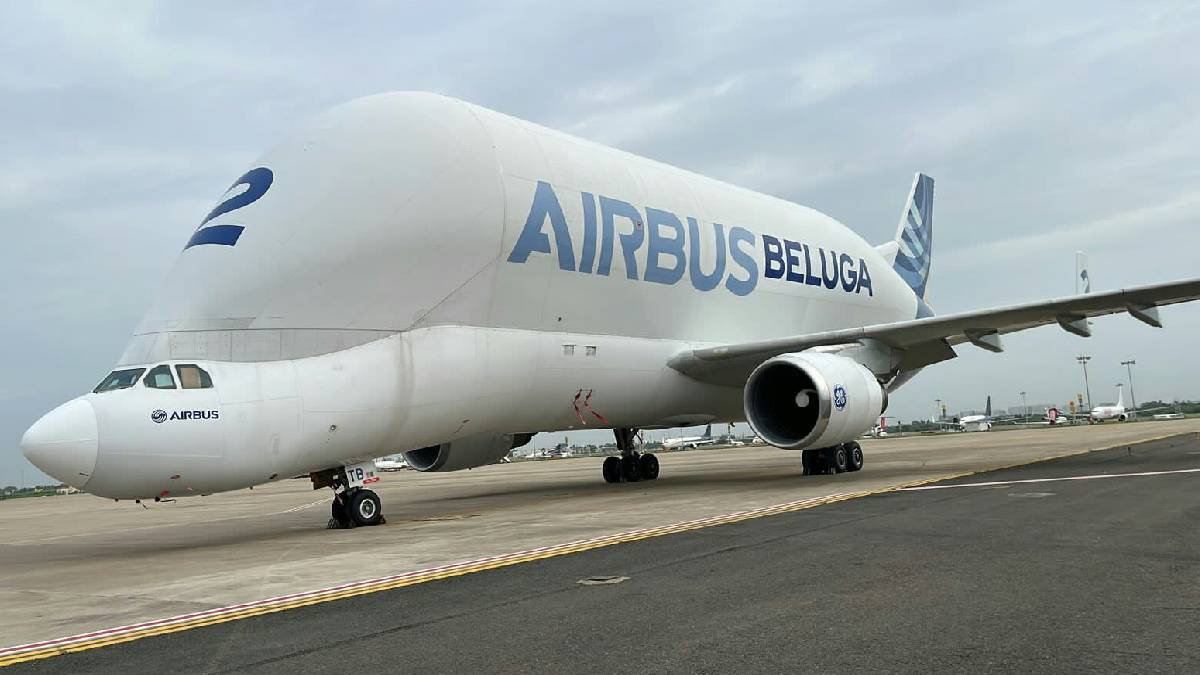Airbus Beluga At Chennai And Specialties Of The Whale Cargo Plane
Sophia Loren (Author) Published Date : Jul 12, 2022 15:26 ISTTamil Nadu
A Whale plane that landed at Chennai International Airport yesterday has attracted attention among passengers and people at the airport. The photos of the plane, which looked like a whale, are going viral. The plane's name is the Airbus beluga, and to note, it is a cargo plane.
Airbus beluga can fly at a speed of 864.36 kmph. Airbus Beluga is a gigantic aircraft that can carry up to 150 tons of cargo on average. This plane has the capability to carry another plane. This plane looks like a white whale with a big nose.
The upper part of the nose looks swollen. In aeroplanes, the opposite pressure is called drag. This helps the plane to land. The pressure from the bottom to the top that helps the plane to fly is called lift. This whale-like design was given to this aircraft to reduce drag and increase the lift.
Airbus Beluga can carry only two people. Yes, none other than the two pilots will travel in it. Moreover, even the pilot cockpit in the airbus is very small. It has an average load capacity of up to 150 tonnes. The Airbus Beluga is 56.15 meters long, with a wingspan of 44.84 meters. This plane arrived at Chennai airport yesterday.
This cargo plane, Airbus Beluga, is also called an A300-600ST Super Transporter. It was landed at Chennai Airport for the first time to refuel and for the pilots to take a rest. The Airbus Beluga departed at around 1.25 am on 12 July.
After arriving for refuelling, the plane took off again. The Airbus Beluga aircraft that was present at the Chennai airport yesterday attracted the attention of the staff there. The flight attendants, and even some of the pilots, came to see this Airbus Beluga plane.
There was no lead in that cargo plane, and it was heading to Singapore. In between, there is a fuel filling station in Chennai. It is noteworthy that this giant Airbus Beluga aircraft landed in Chennai for the first time. The Beluga has been operating for Airbus' industrial airlift needs since the mid-1990s and is progressively being replaced by a fleet of six new-generation BelugaXL versions.
The elegant whale is here and with such awesomeness!
— Chennai (MAA) Airport (@aaichnairport) July 11, 2022
The mighty #Beluga No.2 (A300-608ST) landed at Chennai Airport for the first time, today. The cargo transporter is a rare vistor in this part of the world and a marvel to behold. @AAI_Official @MoCA_GoI @pibchennai pic.twitter.com/ZAFkb15AzQ




